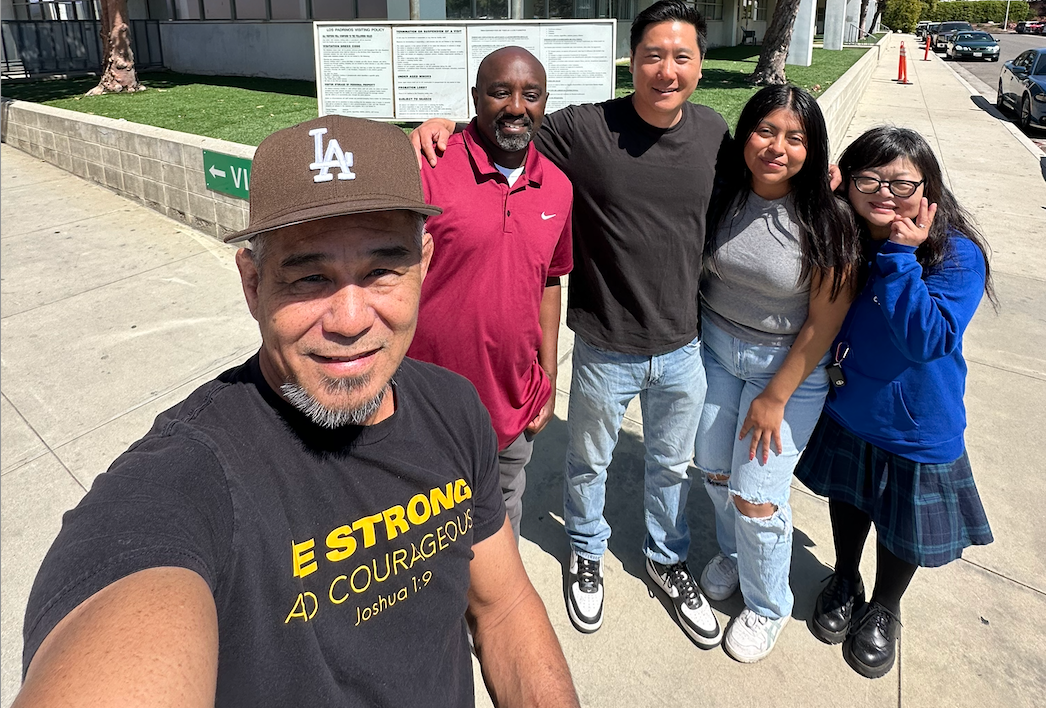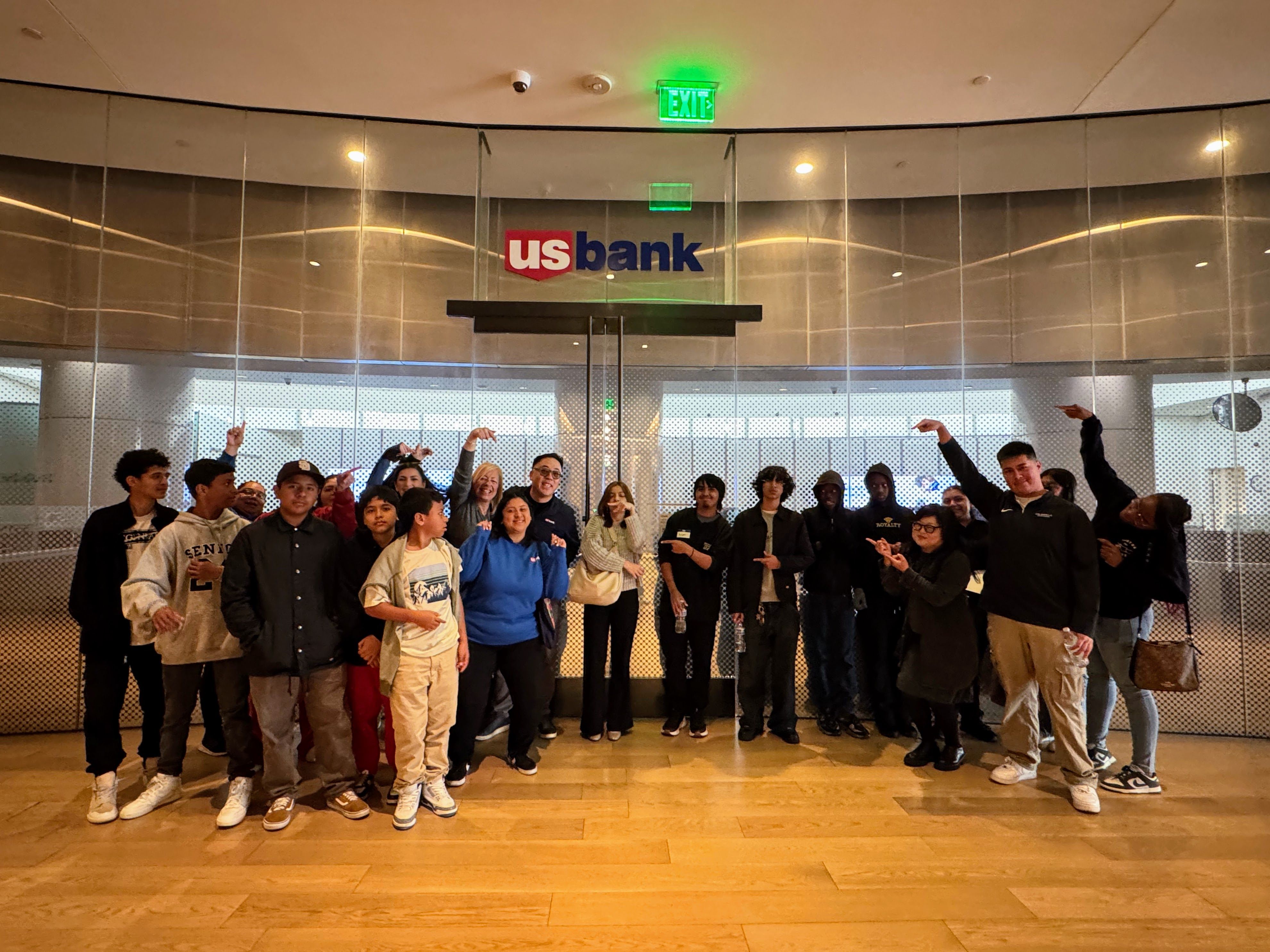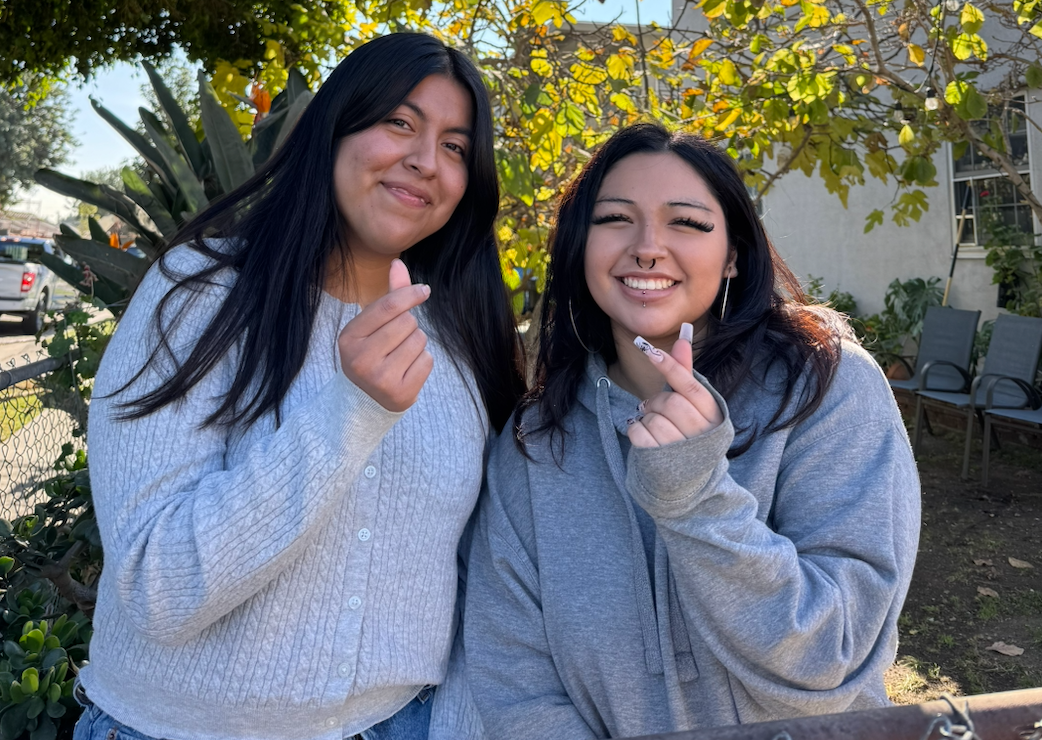LA2050 Blog
We’ve got access to the information that every Angeleno needs to make an impact. Our blog features the latest LA2050 news, announcements, features, happenings, grantee updates, and more.

Mentor For Change Builds Stability and Opportunity for Transition-Aged Youth
PostedOver the past month, we checked in with our 2024 grantees to learn how their funded programs, projects, and initiatives are progressing – and to better understand the impact they’re making across Los Angeles. Now, we are excited to share these interviews, with stories of growth, challenges, and community transformation.
Mentor For Change received funding through the LA2050 Grants Challenge from the Conrad N. Hilton Foundation to support its mentorship-driven college and career program supporting first-gen, low-income youth toward adult independence. Below is an edited transcript of our conversation with their team.

LA2050: Mentor for Change provides holistic support to first-generation low-income (FGLI), unhoused, and justice-impacted youth. How do you balance helping participants with immediate needs, like housing or jobs, while also pursuing a long-term vision of community change?
Mentor For Change: We would say that we balance the immediate needs with the long-term change we want to help create. It's really through the relationships we have with our young people, whether they are youth who are the first in their family to pursue post-secondary education, experiencing homelessness, or currently incarcerated at Los Rodrinos. We have found that when we help them meet their immediate needs and provide mentorship support that includes co-navigation of different developmental milestones, they are equipped to become the agents of long-term impact in their own lives. This also impacts their families and communities.
We had one particular student who was unhoused. We met her back in 2023 when she was involved with HopeMentor, our career exploration program customized for unhoused youth that also includes social-emotional learning support. She then became part of DreamMentor, which does career-based mentorship. After she graduated from DreamMentor, she became part of CollegeMentor. With the support of the CollegeMentor program, she submitted applications to California State University, Sacramento’s Educational Opportunity Program (EOP), the University of California’s EOP, as well as private school college applications through The Common Application program. These were things that she had aspirations to do but there were some steps she needed support on. She needed training about what each of those application systems were, as well as individualized coaching. Her individual coach was able to help her navigate through all the different elements of the application system and also help her overcome some of her emotional challenges. Ultimately, she submitted 26 applications to universities, and she couldn’t have done that without having that personalized support. She also needed co-navigation support to collect her vital documents to be onboarded into our paid internship program. She is less than two months away from high school graduation and has committed to UC Berkeley.
When our students need to get their state IDs, it's not always an easy process because some of them don't have any documentation. Unhoused youth may have been displaced multiple times and so they don't have their birth certificate. They don't have other kinds of documentation, or even necessarily a permanent address, that they can readily provide when applying for a state ID. So some of the immediate needs we provide our students consist of guidance, emotional and relational care, transportation support, and in some cases just daily interaction. We’re there to help young people meet certain milestones in their life.
The young people in DreamMentor provide an example of how our young people are making an impact that creates systems change. They do a community impact project, where they are able to address a need within their own community. They utilize everything they learned from our workshops, with support from their mentor.
The student we referenced was able to create a community impact project focused on health equity, showing how we can better support unhoused girls and women who are experiencing period poverty. This student took her own lived experience as a young, unhoused person and applied it to her research about the needs of young girls and women who were at the Union Rescue Mission. She was then able to create, design, assemble, and distribute
hygiene kits that were addressing both the physical and emotional needs of those at the Union Rescue Mission. Each one of these hygiene kits also includes customized affirmation cards, just so that every person that receives them could remember that they are worthy of love investment. For the student this was an impactful moment because it helped her create long-term transformation in her community. She has made a commitment to pursuing advocacy, and has applied to college as a political science major with the intention of going into human rights and civil rights law.
So we can see when young people have that immediate care and support and that co-navigation, they're able to make life decisions that allow them to meet those developmental milestones of high school graduation, college admission, employment, and community engagement. They are also developing stronger relationships in their family contexts because they have that web of personal caring relationships with a cohort of different adults, including their mentor and our team members.

LA2050: What are some unique challenges that this generation of youth is facing, and how are you responding?
Mentor For Change: We think the main challenge is the need for relationships and community building. We always ask the students in our DreamMentor program how connected they feel to a community, and a good chunk of them stated that they don't feel connected to one. We think this translates to all of the youth in our different programs; they just need that sense of community and support.
We do workshops at Union Rescue Mission for youth who are experiencing homelessness, where we provide social and emotional learning tools. We always start off with just asking them how their day was, or how they are, and some students respond that this is the first time in the day being asked those questions. This just goes to show that a lot of our youth are experiencing some sort of loneliness.
But, with additional support, they have the confidence to achieve their goals. One of the students in our CollegeMentor program, stated that her mentor gave her the confidence to apply to college. This is a main theme for our mentees since many of them are first-generation students navigating the educational system for the fire time. This can be a lonely process, so having that additional layer of support and community can really help them out.

LA2050: What do you hope to achieve in the last six months of the grant, and how can the broader LA2050 community support?
Mentor For Change: With the uncertainty of the political and economic climate, Mentor For Change has been very intentional about applying to grants from foundations, corporate foundations, and the government. One of the ways we want to mitigate that uncertainty is by attempting to start a social enterprise, in the form of a coffee shop. One of our board members who owns multiple businesses suggested this idea, and we have connections to architects who can help us design the coffee shop. So during the next six months, we are going to be developing a business plan with some of our board members to figure out how much we need to fundraise to start a coffee shop business. Ideally the coffee shop would be a place of workforce training and employment for our unhoused youth population, and youth coming out of Los Padrinos. It's really through partnerships and collaboration that we can find success with this coffee shop. One of the ways that we want to begin his endeavor is by reaching out to other coffee shops, especially if they're a social enterprise. We don't wanna replicate the services that are being done, and want our work to be unique to what's already going on. Throughout these next six months the broader LA2050 community can support us by connecting us with an angel investor who's willing to donate towards the start of this business, and seeing if there are other social enterprises who would be open to talking to us. We want to learn from you and your experience, and we would love to take you out for lunch or coffee.
When we were approved for the LA2050 Grants Challenge we were excited that such a reputable foundation would award us. We know the quality of work and service we provide in the community, but the grant that we received was a real affirmation that we are seen and our work is valued.
Interview Participants:
Steven Yu, Executive Director
Esther Yim, Director of Programs
Amy Flores, Program Manager